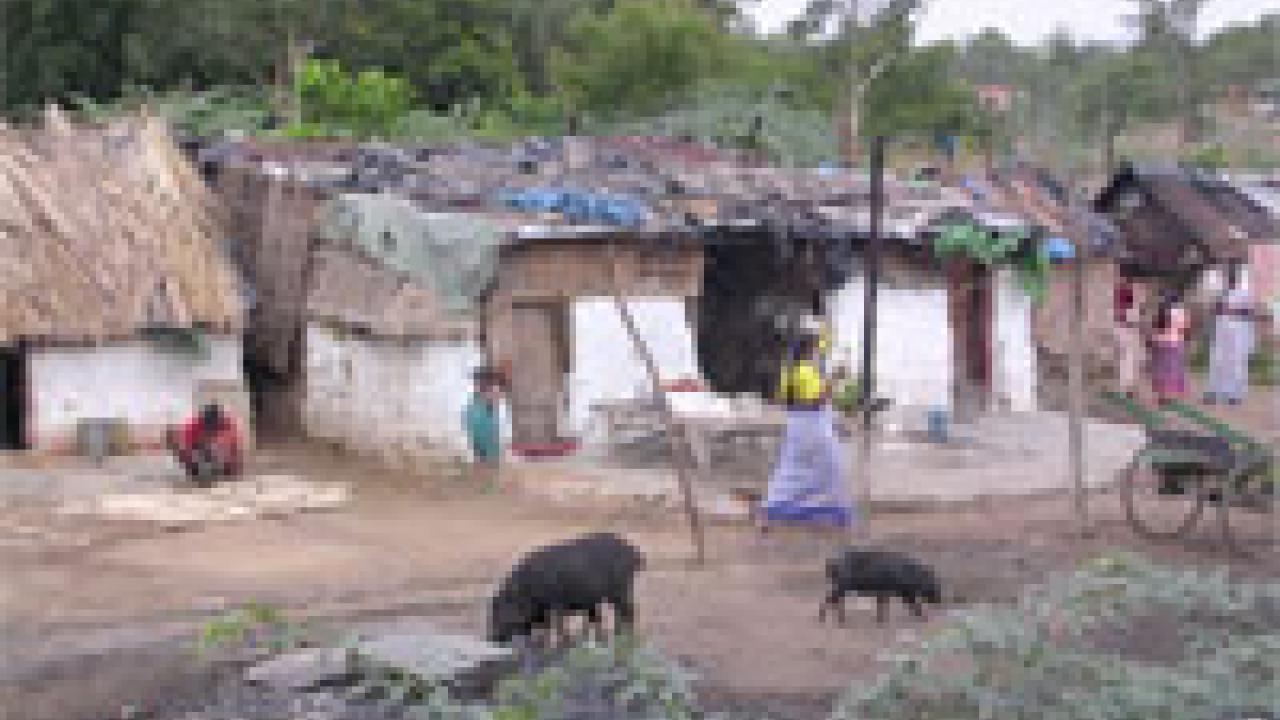A UC Davis delegation traveling to Singapore, Malaysia and India last month — to explore further exchange and research-collaboration opportunities — found significant receptivity, heard of stumbling blocks needing attention and smoothed the way for follow-up dialogue by interested faculty.
"I'd hoped in setting out on this trip that we'd discover new opportunities for interaction and learn new things about these countries that could make a difference in how we approach exchanges," said Chancellor Larry Vanderhoef.
"That was certainly the case, from seeing the rich opportunities for our students to immerse themselves in three distinct cultures in Malaysia, to identifying opportunities to partner more fully with an international crops research institute dedicated to improving the lot of poor farmers in Africa and India, to seeing possibilities for collaboration with some of India's most distinguished biological sciences institutes."
Joining Vanderhoef on the trip were Bill Lacy, vice provost for university outreach and international programs; Bob Kerr, director of the international alumni and visitors program; and, for the India leg of the trip, Gurdev Khush, a plant sciences adjunct professor who is well known in his native country for the work that led to his election to the National Academy of Sciences and to the Royal Society of London. The group met with educational leaders, alumni and Fulbright officers in the three countries and with Intel Corp. officials in India. Lacy and Kerr went on to Thailand for similar meetings there. They also had an opportunity to compare notes with two universities celebrating their centennials as UC Davis approaches its 100th year.
Singapore
The UC Davis group was initially drawn to this area of the world by the annual meeting of the Association of Pacific Rim Universities presidents, held this year in Singapore. For the first time, APRU members were joined by Association of American Universities presidents not from Pacific Rim universities.
They wrestled with such questions as: Is it wise for U.S. universities to create campus branches in other countries? Is it possible to provide an international experience for students without sending them abroad? And can institutions broaden faculty members' international focus by, for example, creating attractive international sabbatical opportunities? The presidents leaned toward "yes" in each case.
Vanderhoef also briefed the presidents on California's stem cell initiative and the research opportunities and challenges it presents.
Hosted by the National University of Sing-apore, the group met with Singapore's founding prime minister and the two who succeeded him, dined with Singapore's president at the Presidential Palace and heard a "lovingly critical" talk by a former Singaporean ambassador to the United Nations. The former ambassador urged that America not make China its new enemy, that it not demonize Islam, and that it not abandon the legacy of the Atlantic Charter forged in 1941 by President Franklin D. Roosevelt and Prime Minister Winston S. Churchill to outline principles of international governance.
Malaysia
Collaborative opportunities were broached with the University of Putra Malaysia — which is headed by an alum — and the University of Malaya, whose vice chancellor committed to send up to five of his faculty to UC Davis in October to explore promising areas of partnership.
Student educational opportunities struck Vanderhoef as particularly promising because of Malaysia's three cultural heritages, each about equal in representation — Malay, Chinese and Indian — and its common language of English.
India
The group next opened the channels of communication with institutes and universities in Bangalore and Hyderabad, the preeminent centers of learning in India, said Khush.
The level of the institutions is very high, the research is very good and the students are highly motivated, he added. And most have hosting facilities for visiting scientists and students — a real plus, he said, because "housing is so important when you come into a foreign culture."
UC Davis researchers were well known to faculty at such institutions as the National Center for Biological Science, the Indian Institute of Science, the University of Hyderabad, the Center for Cellular and Molecular Biology, Osmania University, and the International Crops Research Institute for the Semi-Arid Tropics. ICRISAT is already collaborating with Patrick Brown of the UC Davis College of Agricultural and Environmental Sciences' international programs office and is interested in expanding collaborative opportunities.
Brown notes that their collaboration will provide graduate students in horticulture and international agriculture development with opportunities to obtain international research experience while assisting some of the world's poorest nations.
As well, UC Davis faculty members Julian Alston, Jim Chalfant, Douglas Cook, Satya Dandekar, Desmond Jolly, Paul Marcotte, Pam Ronald and Dan Sumner were mentioned as valuable contributors to the Indian faculty's research interests.
"India is one of our key partners," said Lacy. "This trip reconfirmed the excellence of the approximately 100 students and 60 scholars currently at UC Davis. Many of our faculty recognize that and continue to work with our Indian colleagues. And now, as a result of this trip, we have identified additional opportunities for research collaboration and funding support."
---------------------
Though some constraints have been eased, post-9/11 travel restrictions continue to make some international exchanges difficult, a recent UC Davis delegation to south Asia was told. For more details about those challenges, click here.
Media Resources
Maril Revette Stratton, (530) 752-9566, mrstratton@ucdavis.edu
